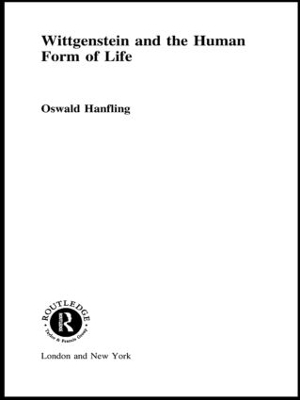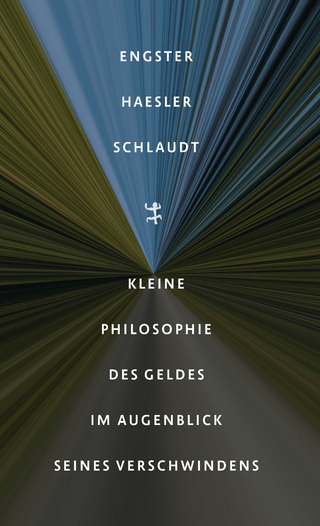
Wittgenstein and the Human Form of Life
Seiten
2006
Routledge (Verlag)
978-0-415-40813-4 (ISBN)
Routledge (Verlag)
978-0-415-40813-4 (ISBN)
The implications of Wittgenstein's later writings have become one of the major features of the past few years. This text offers a critical interpretation of Wittgenstein's writings and their impact for our ways of thinking.
Wittgenstein's later writings generate a great deal of controversy and debate, as do the implications of his ideas for such topics as consciousness, knowledge, language and the arts.
Oswald Hanfling addresses a widespeard tendency to ascribe to Wittgenstein views that go beyond those he actually held. Separate chapters deal with important topics such as the private language argument, rule-following, the problem of other minds, and the ascription of scepticism to Wittgenstein. Describing Wittgenstein as a 'humanist' thinker, he contrasts his views on language, art humanity and philosophy itself with those of scientifically minded philosophers. He argues that 'the human form of life' calls for a kind of understanding that cfannot be achieved by the methods of emirical science; that consiousness, for example, cannot properly be regarded as a property of the bran; and that the resulting 'problem of consoiusness is an illusion.
Wittgenstein and the Human Form of Life is essential reading for anyone interested in Wittgenstein's approach to what it means to be human. It will be invaluable to all Wittgenstein scholars, and all who are interested in the philosophy of mind, language and aesthetics.
Wittgenstein's later writings generate a great deal of controversy and debate, as do the implications of his ideas for such topics as consciousness, knowledge, language and the arts.
Oswald Hanfling addresses a widespeard tendency to ascribe to Wittgenstein views that go beyond those he actually held. Separate chapters deal with important topics such as the private language argument, rule-following, the problem of other minds, and the ascription of scepticism to Wittgenstein. Describing Wittgenstein as a 'humanist' thinker, he contrasts his views on language, art humanity and philosophy itself with those of scientifically minded philosophers. He argues that 'the human form of life' calls for a kind of understanding that cfannot be achieved by the methods of emirical science; that consiousness, for example, cannot properly be regarded as a property of the bran; and that the resulting 'problem of consoiusness is an illusion.
Wittgenstein and the Human Form of Life is essential reading for anyone interested in Wittgenstein's approach to what it means to be human. It will be invaluable to all Wittgenstein scholars, and all who are interested in the philosophy of mind, language and aesthetics.
Oswald Hanfling is a former Professor of Philosophy at the Open University. In addition to his many papers on Wittgenstein, he is the author of several books including Wittgenstein's Later Philosophy (1989) and Philosophy and Ordinary Language (Routledge, 2000).
Introduction 1. Questions and answers in Wittgenstein's philosophy; 2. What does the Private Language Argument prove? 3. Criteria, Conventions and the problem of other minds 4. Does language need rules? 5. Wittgenstein on the use of 'I know' 6. Was Wittgenstein a sceptic? 7. Wittgenstein on language, art and humanity 8. Wittgenstein and the problem of consciousness 9. Could machines think? 10. Thinking 11. Secondary sense and 'what they have in common'
| Erscheint lt. Verlag | 2.10.2006 |
|---|---|
| Verlagsort | London |
| Sprache | englisch |
| Maße | 156 x 234 mm |
| Gewicht | 272 g |
| Themenwelt | Geisteswissenschaften ► Philosophie ► Metaphysik / Ontologie |
| Geisteswissenschaften ► Philosophie ► Philosophie der Neuzeit | |
| Geisteswissenschaften ► Philosophie ► Sprachphilosophie | |
| ISBN-10 | 0-415-40813-X / 041540813X |
| ISBN-13 | 978-0-415-40813-4 / 9780415408134 |
| Zustand | Neuware |
| Haben Sie eine Frage zum Produkt? |
Mehr entdecken
aus dem Bereich
aus dem Bereich
Buch | Hardcover (2024)
Matthes & Seitz (Verlag)
28,00 €


